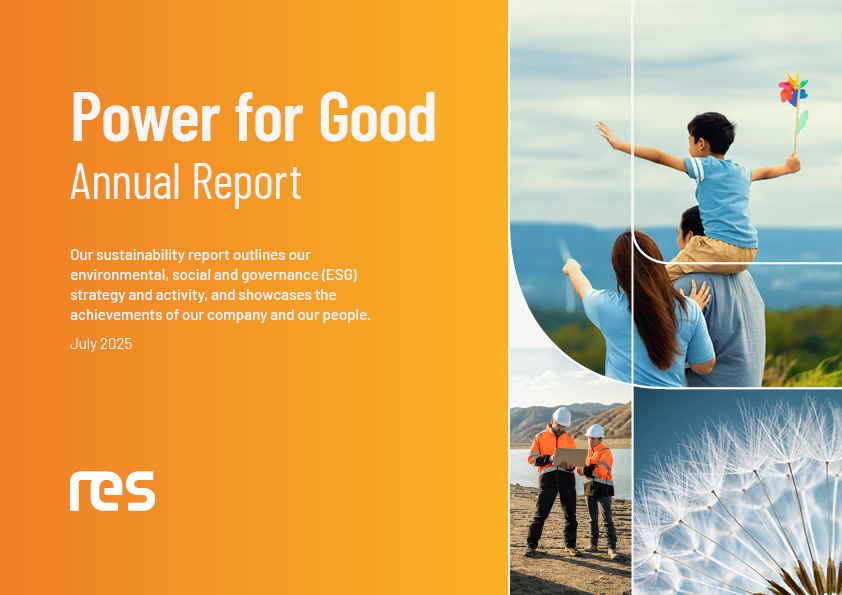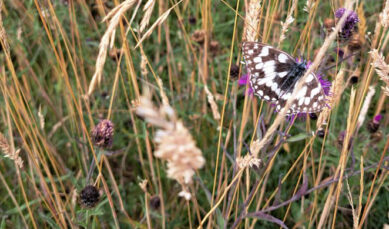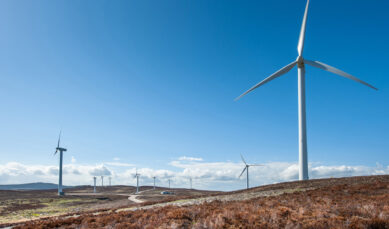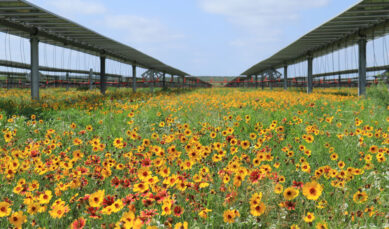We are committed to respecting and protecting the natural, cultural and historical heritage of the environments in which we work. Providing services for renewable assets across 1,300 sites in 24 countries, we ensure compliance with local legislation and ESG disclosures, as well as following best practices with our global approach. …
Advancing reconciliation through respectful partnerships with first nations communities
by RES | Jul 17, 2025 | Reading time: 3 min
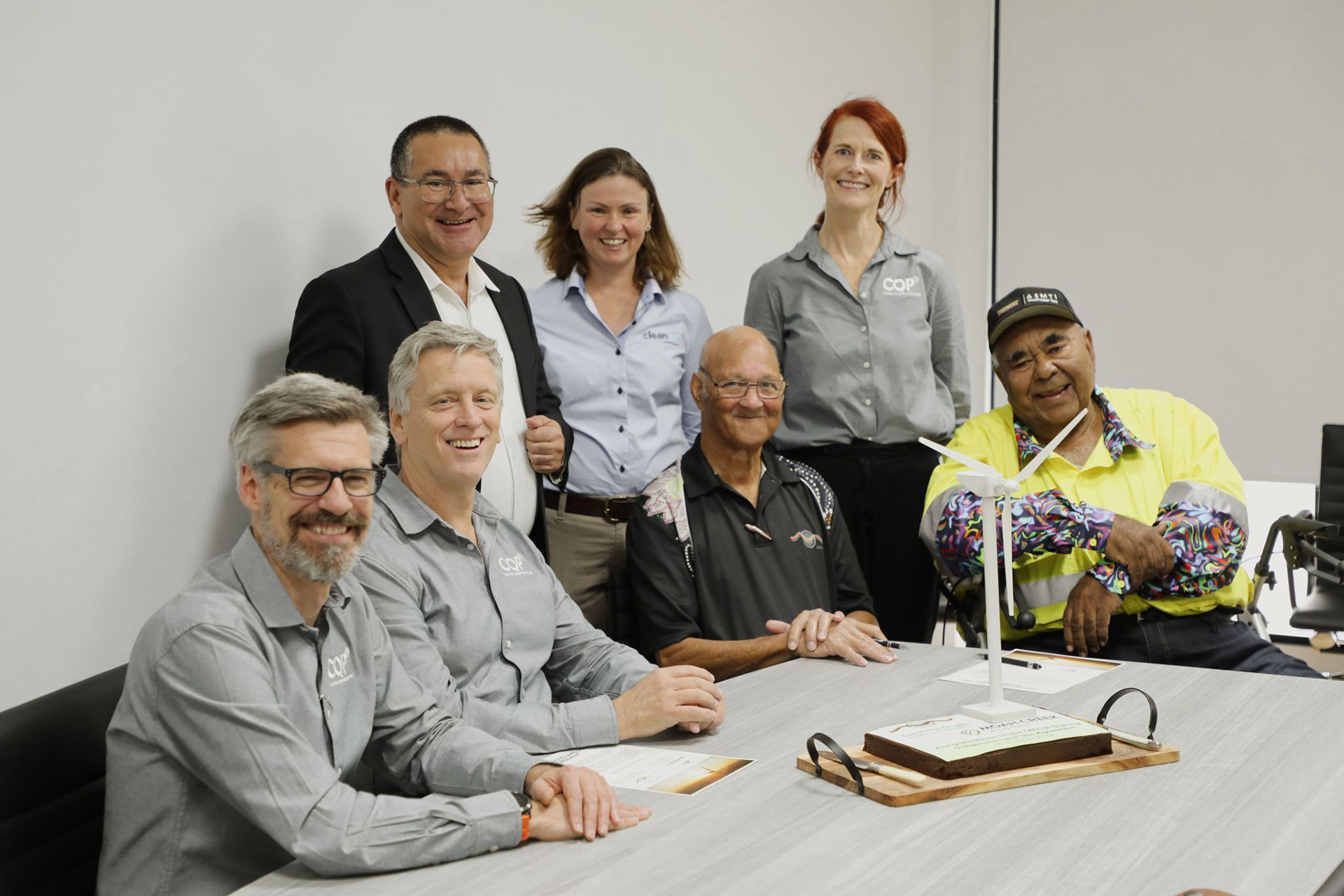
Our culture of care extends to the environment and all stakeholders. Through our commitment to community relations, we seek to demonstrate this through respectful engagement and collaboration with Indigenous stakeholders, whose ancestral lands we live and work on.
Increasing our understanding, value and recognition of Indigenous cultures, histories, knowledge and rights, are key to building respectful relationships with Indigenous communities and creating a more holistic and inclusive approach to our work, in the true spirit of “Power for Good”.
Moah Creek Wind Farm Indigenous Land Use Agreement
In October 2024 we celebrated the signing of two agreements between Central Queensland Power (a JV between RES and Energy Estate) and the Darumbal People the Aboriginal Corporation RNTBC – the Traditional Custodians of the land at the Moah Creek Wind Farm site.
The agreements, which were codesigned, collaboratively through a 12-month engagement process, will provide a pathway for the Moah Creek Wind Farm to deliver enduring economic and social benefits to the Darumbal People for generations to come, as well as recognition and preservation of their cultural heritage and values. The Project will employ a Darumbal Liaison Officer to ensure coordination and identification of opportunities for Darumbal businesses and people.
This experience has built a shared vision for the project and mutual respect between the parties involved. Agreements like these ensure that Queensland’s renewable energy transition moves forward with respect, and recognition of the rights and aspirations of First Nations communities. We look forward to building on this meaningful partnership for the life of the project.
Building a broader reconciliation journey
Our work at Moah Creek is part of a wider, long-term commitment to reconciliation in Australia. In 2022, we began developing our Reconciliation Action Plan (RAP), a framework to support our contributions towards Australia’s national reconciliation with First Nations people. A dedicated committee, the Origins Working Group was established to implement the RAP and ensure RES meets its commitments.
In 2024, the group completed the Reflect stage, with 32 actions focused on building relationships, respect, and opportunities, aligned with our vision for reconciliation – a happier, safer, more successful workplace that provides equitable and tangible benefits for the self-determination of Aboriginal & Torres Strait Islander peoples, facilitating deeper impact from our work.
Highlights from our reconciliation actions
Reflecting on the past years, it’s evident that our dedication to reconciliation has not only deepened but has also borne tangible results. Through concerted efforts and meaningful initiatives, we’ve made significant strides in fostering a more inclusive and culturally aware environment within our organisation and across our projects.
- The Australian team received a presentation on the Leading Practice Principles for First Nations and Renewable Energy Projects. They are also provided with the opportunity to learn about diverse First Nations cultures and histories with training and “On Country” walks facilitated by local Traditional Owners. In addition, we have various online resources and an ongoing program for further cultural learning.
- We participated in industry leading initiatives with taking an active role in working groups and meetings to contribute and lead the industry in reconciliation efforts and showcasing best practice examples.
- We were nominated for Partner of the Year by the New South Wales Indigenous Chamber of Commerce.
- We developed internal policies to embed recommendations from the Leading Practice Principles into our projects and business processes.
- We increased procurement with First Nations suppliers, including a long-term PPE supply contract.
- We supported multiple events through sponsorship and volunteering, including Reconciliation Week and NAIDOC Week activities, the GAWURA Aboriginal Education Advocacy Group, Barengi Gadjin Aboriginal Corporation’s website and Elders site visit, and a women’s group walk with the Jerilderie Jeithi Cultural Centre.
Continuing our commitment
Our journey towards reconciliation is ongoing. We recognise that true partnership requires continuous learning, listening and action. By building long-term relationships grounded in respect, we aim to ensure that First Nations voices are heard, valued and embedded in the energy transition. The Moah Creek Wind Farm agreement is one meaningful step and we remain committed to working in partnership to create shared value and a more inclusive future for all.
Latest Resources
Learn more about our work.
Benefiting local communities through electricity discount schemes
Over 10 years ago we established our unique and innovative Local Electricity Discount Scheme (LEDS) to ensure local communities were at the heart of the development process. LEDS offers direct cost savings to the local community through an annual discount on the electricity bills of properties closest to a participating…
Enhancing biodiversity at solar farms
We are committed to respecting and protecting the natural, cultural and historical heritage of the environments where we work. Across the 1,300 sites we support in 24 countries, we ensure compliance with local legislation and ESG disclosures, while also applying best practice through a global approach. Land management is a…


